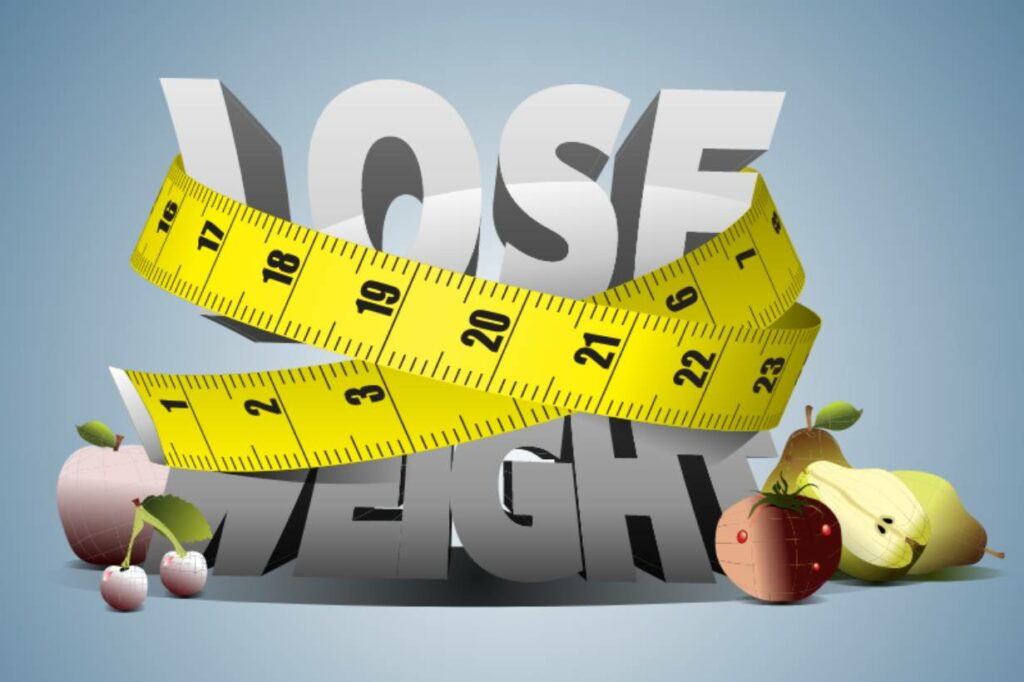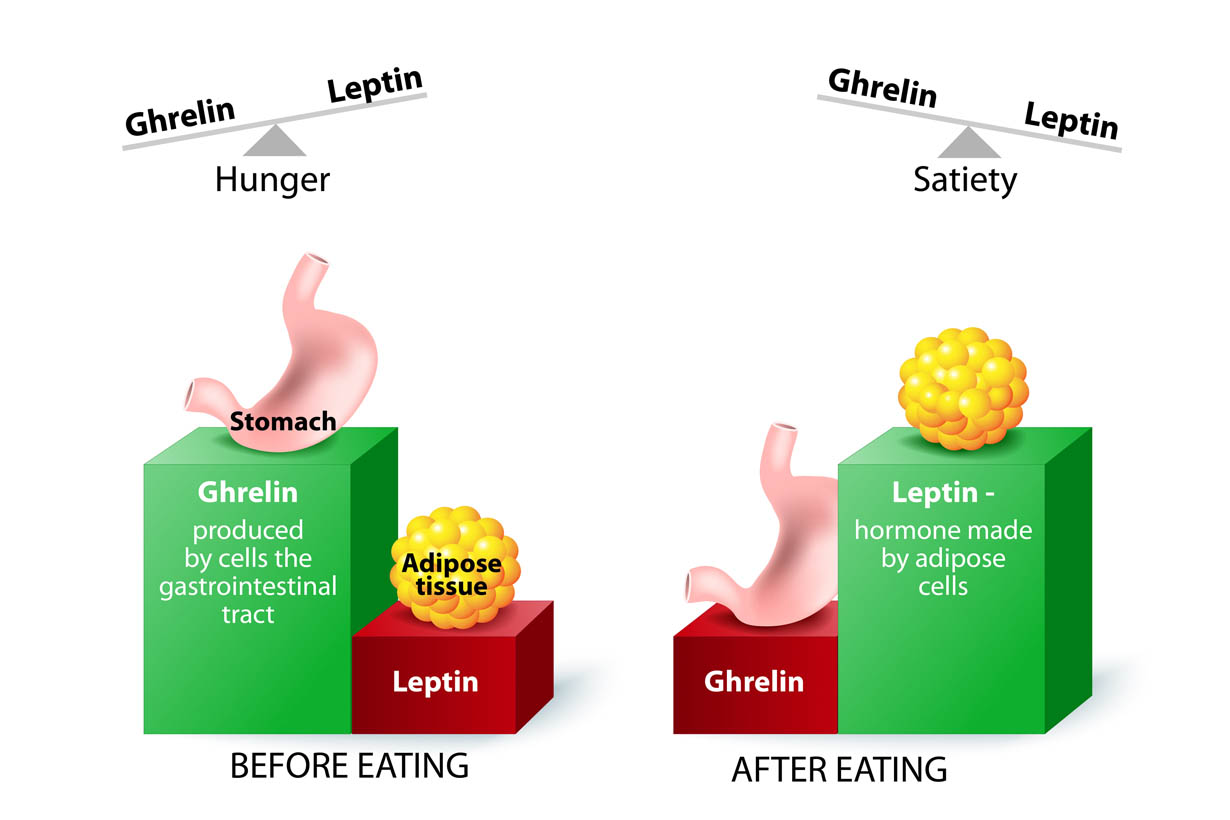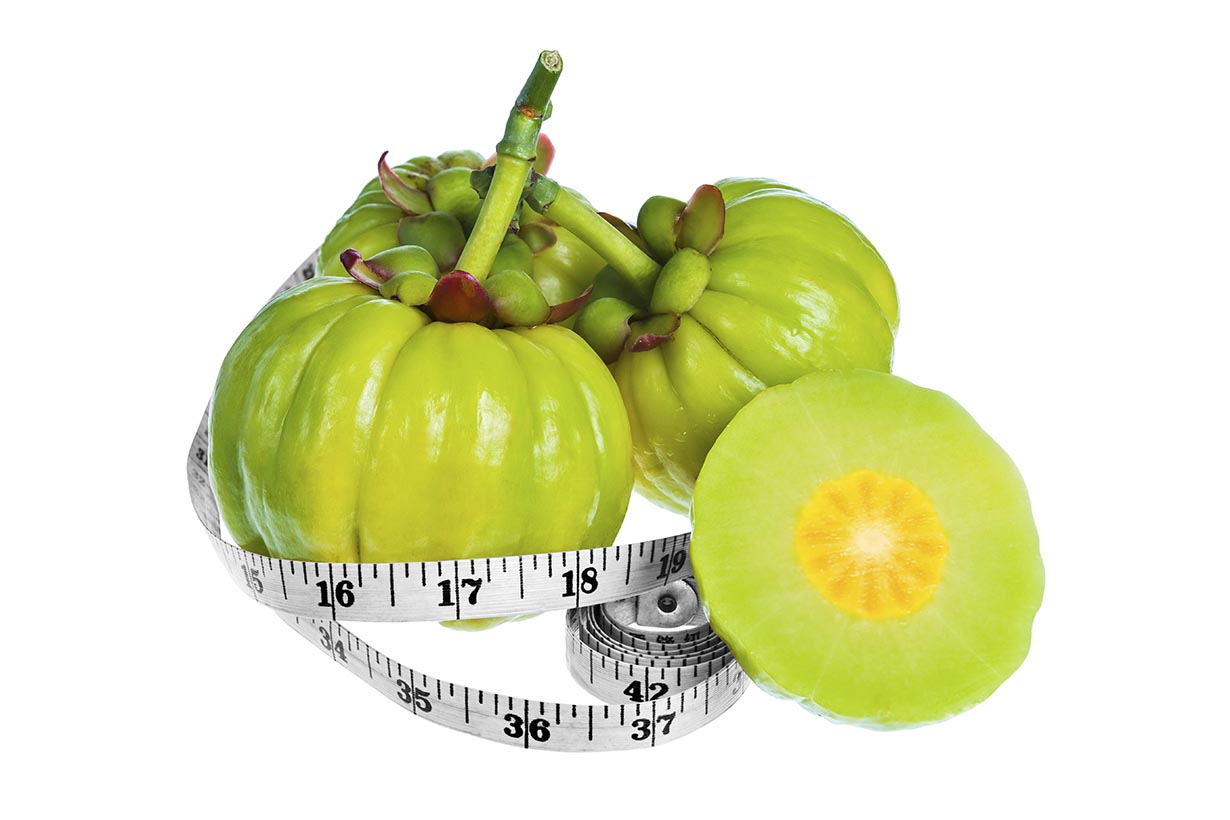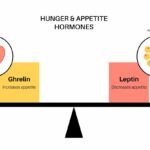Calories are important, and consuming less energy than we burn is essential for losing weight.
However, not everybody enjoys counting calories or “points,” and they wish for a simpler weight loss method.
This article will present some evidence-based tips that may help contribute to weight loss.

1) Consume Sufficient Protein At Each Meal
Consuming enough protein is important for several reasons.
Firstly, protein intake influences lean body mass composition. In other words, protein is important for building and maintaining muscle (1, 2).
Notably, greater lean body mass increases the basal metabolic rate (3, 4).
In practice, this means that people will burn more calories at the same activity levels, which can assist in weight loss efforts.
Secondly, recent systematic reviews of randomized controlled trials have found that high protein intake may help to suppress appetite and increase satiety (5, 6).
To put it another way, consuming a decent source of protein at each meal may help to discourage subsequent excess food intake.
2) Limit Drinking Liquid Calories
Some people put together diets that include a good and nutritious range of foods yet over-consume calories from drinks.
It is important to note that some drinks can contribute hundreds of calories in a single drink.
Some examples of this include sugar-sweetened soda and cafe drinks such as caramel macchiato, which can be high in sugar and fat.
While it isn’t a problem to include these drinks occasionally, they are a regular habit for many. Such beverages may also sabotage weight loss efforts.
However, limiting our calorie intake from drinks doesn’t mean we have to drink water and nothing else.
Some drink options that are calorie-free (or very low in calories) include:
- Water
- Black coffee
- Green/black tea
- Herbal tea
- Sugar-free ‘zero’ or ‘diet’ soda
A 2012 randomized clinical trial found that in 318 overweight and obese adults, replacing caloric beverages with either weight loss or diet soda resulted in an average weight loss of 2-2.5% over six months (7).
Additionally, a 2022 systematic review and meta-analysis of 17 randomized clinical trials demonstrated that using low and no-calorie sweetened drinks as a substitute for sugar-sweetened beverages reduced body weight and body fat percentage (8).
3) Aim For Sufficient Sleep
We all know we need to get sufficient sleep, but actions can sometimes be more challenging than words.
However, some convincing reasons exist to aim for better quality sleep.
For example, research shows that a lack of sleep causes ‘hunger hormone’ levels to rise. Such hormones include ghrelin, higher levels of which can increase appetite (9, 10, 11).
Furthermore, sleep deprivation studies have confirmed that poor sleeping patterns increase energy intake (12, 13).
Losing weight can be difficult, so the last thing we want to do is fight hormonal urges to eat more food at the same time as we attempt to diet.
Getting somewhere in the region of 7-9 hours of sleep per night appears to be about right. This is the amount recommended by the American Academy of Sleep Medicine and the Sleep Research Society (14, 15, 16).
4) Weigh Portion Sizes
Weighing everything we eat is probably a little stressful (and unnecessary).
However, there are certain foods that people over-consume due to significantly underestimating the size of a portion.
On this note, a 2014 survey asked 124 consumers at a shopping center to pour a serving of various kinds of cereal into a bowl. Compared to the recommended serving size, the average “overpour” was 282% for granola and 132% for Cheerios (17).
In this regard, eating a specific recommended amount is not necessary, but knowing how much we habitually eat is essential.
Using a kitchen scale to weigh portions of hard-to-measure foods could be helpful in this context. Such foods may include harder/dried products like nuts, cereals, and dried fruit.
5) Try To Incorporate Daily Movement
Exercise should never be viewed as a replacement for a good diet; both are important. In other words, we shouldn’t try to make up for a poor diet by exercising more.
That said, consciously attempting to move more and creating a daily habit of working some movement into the routine can have positive effects.
Running, walking, cycling, hiking, or participating in a sport can all be very helpful. This is particularly true for older adults, as activity levels tend to drop with increasing age.
Every little helps, whether a ten-minute walk or a half-hour run.
A 2018 systematic review of 26 studies analyzed the effects of a behavioral weight management program delivered to veterans called MOVE! (18).
Among its findings, individuals with high program participation levels experienced the most weight loss. This weight loss averaged 1.18 kilograms to 5.3 kilograms over six months and 1.68 kilograms to 3.58 kilograms at 12 months (18).
Increasing daily movement leads to greater energy output, meaning we can:
- Lose more weight while eating the same amount
- Eat more food without gaining weight
When combined with a healthy dietary pattern, this can be very helpful for improving body composition.
6) Incorporate Resistance Training
Resistance training, more commonly known as “lifting weights,” can help to build lean body mass. It may also have some additional benefits, specifically for weight loss.
A 2021 systematic review and meta-analysis reviewed randomized trials that compared resistance training to a no-exercise control in healthy adults for at least four weeks. The review covered 58 studies involving 11,981 participants (19).
The results showed that resistance-trained participants reduced their body fat percentage by 1.46% compared to the control.
A further systematic review and meta-analysis on resistance training’s effectiveness on body composition and body weight was published in 2022. This study found that resistance-training programs effectively increase lean body mass, reduce regional adiposity, and lower body weight (20).
7) Limit Sweet Snacks
Eating a dessert after dinner each day is easy, particularly when it is a relatively common cultural tradition.
However, following up a meal with sweet snacks like cakes and cookies can add hundreds of extra calories.
If weight loss is the aim, limiting these sweet desserts could help.
Alternatively, opting for healthier desserts such as fruit, yogurt, or a trail mix may also help, based on their more significant impact on satiety (21, 22).
8) Limit Ultra-Processed Food Intake
According to the NOVA classification system, ultra-processed foods are (23):
“ready-to-eat industrially formulated products that are “made mostly or entirely from substances derived from foods and additives, with little if any intact Group 1 food.”
‘Group 1 food’ refers to unprocessed (like an apple) or minimally processed foods (such as a glass of milk).
Why should we limit ultra-processed foods?
Although we don’t yet have conclusive research showing why, we know that ultra-processed food intake is strongly associated with overweight and obesity (24, 25).
Additionally, a 2019 randomized controlled trial occurred at the National Institutes of Health Clinical Center (26).
This study took 20 adult inpatients and fed them an ‘ultra-processed’ diet and an ‘unprocessed diet for 14 days each. These diets were designed to have the same calorie, sugar, fat, fiber, vitamin, and mineral content.
The exact meals consumed on each diet are available here.
The participants were allowed to consume as much or as little as they wanted at each meal.
Notably, participants consumed an average of 500 calories more per day on the ultra-processed diet. Additionally, they gained 0.9 kilograms (2 lbs) on the ultra-processed diet but lost the same amount on the unprocessed diet.
It is thought that ultra-processed foods (such as pies, cookies, and bagels) don’t have the same effect on satiety and appetite as unprocessed foods. Thus, they are easier to over-consume.
As a result, limiting the intake of ultra-processed foods will probably be helpful for individuals looking to lose weight.
9) Focus On Whole Foods Foods That Have a Higher Volume
Focusing on high-volume foods may help to limit our total intake of food.
Since the stomach only has limited capacity, heavier foods can increase the feeling of fullness, thus potentially helping to lower subsequent energy intake from food (27, 28, 29).
For example, consuming 1000 calories from ice cream would be much easier and quicker than a meal of plain boiled potatoes and boiled eggs.
A recent study emphasized this point by comparing the effect of 38 grams of milk chocolate (200 calories) and fresh apple that was matched for either weight (38 grams, 20 calories) or calories (380 grams, 200 calories) with the chocolate.
The study found that 380 grams of apple was associated with the least hunger one hour after consumption. Furthermore, food volume was the primary driver of the feeling of fullness and also impacted hunger levels (30).
Whole foods such as fruit and vegetables tend to have a high volume and contain minimal calories. Therefore, compared to heavily-processed food products, focusing on whole foods will likely have benefits in this regard.
Also, an interesting older study published in the American Journal of Clinical Nutrition examined the effect of increasing the volume of food by incorporating air (31).
In this study, participants consumed either 300 ml, 450 ml, or 600 ml of yogurt-based milk shakes. Each of these drinks had the same calorie content and only differed in volume due to the incorporation of air.
Participants reported decreased hunger and increased feelings of fullness after the 450 ml and 600 ml shakes compared to the 300 ml shake. Additionally, subsequent energy intake at the next meal was 12% lower after the 600 ml shake compared to the 300 ml shake.
It is also worth noting that boiled potatoes, which have an incredibly high volume, came top of the satiety index of common foods.
Why Else Should We Focus On Whole Foods?
Furthermore, whole foods provide a package of essential vitamins and minerals, regardless of whether they’re primarily a protein or carbohydrate source.
Generally speaking, this makes them likely a healthier option than more heavily processed foods, which may lack nutritional value.
Additionally, some foods may lower appetite better than others, but most of the available research suggests ultra-processed foods are unlikely to be beneficial.
10) Stop Eating Out of Habit
It is perfectly fine to enjoy a snack while watching a movie occasionally.
However, it can be too easy to over-consume food out of habit to enjoy the feeling of eating. When this becomes a daily habit in the evening, it can understandably have a negative impact on weight.
To illustrate this point, several studies have demonstrated that eating while watching television is associated with a poorer diet, less fruit and vegetable intake, and a greater intake of foods like chips and crackers (32, 33, 34).
Although the current data is mixed and inconclusive, watching TV while eating may also lead to overeating (35).
Instead of sitting down to watch TV with a bag of potato chips, here are some better options:
- Instead of eating a snack, enjoy a drink of herbal tea
- Opt for a healthier snack such as fresh fruit or a trail mix featuring nuts, dried fruit, and dark chocolate
- If wishing to consume potato chips or typical “snack” foods, weigh out a recommended portion size rather than taking the whole bag. However, many people struggle to moderate their intake of such foods. In this context, depending on the person, not buying them at all can be a better option.
- Consider decreasing time in front of the television or, if possible, taking an evening walk.
11) Find a Way of Eating That You Enjoy
Unfortunately, it is common to see people start trendy new diets and give them up soon after. Then, a few months later, they may try another restrictive diet, and so the cycle repeats itself.
The reason why is usually related to severe levels of restriction, which may include:
- Restricting foods that the individual doesn’t want to give up
- Extreme caloric restriction, which usually isn’t sustainable
The critical point with these overly-restrictive diets is this: what happens when someone gives them up?
Firstly, they tend to go back to their old way of eating again, which is the diet that led to the weight gain in the first place.
For sustainable and long-term weight loss that supports good health, we need to find a diet that we enjoy.
It can be difficult to implement a way of eating that is health-promoting and fits the individual’s lifestyle. Personal preferences, finances, and individual context all require consideration.
However, much of the ground we have already covered can be used to cover some of the basics.
For those who require help formulating a diet, it may be a good idea to seek help from a local dietitian.
12) Get More Dietary Fiber
In addition to having important health benefits, dietary fiber intake may also help with weight loss efforts.
On this note, a 2019 randomized trial found that dietary fiber intake promotes weight loss in adults with overweight consuming calorie-restricted diets. This was independent of calorie and macronutrient intake (36).
Additionally, a 2020 systematic review and meta-analysis of 62 randomized controlled trials found that a greater intake of soluble fiber led to mean reductions in (37):
- Body weight (-0.33 kg)
- Waist circumference (-0.63 cm)
- Body mass index (BMI) (-0.28)
These results were seen independently of calorie restriction.
Also, an older 2017 systematric review of 12 randomized controlled trials showed that soluble fiber supplementation decreased body weight, body fat percentage, and BMI (38).
Soluble fiber can be found in foods such as oats, barley, beans, apples, and sweet potatoes.
In this context, focusing on fibrous carbohydrate sources rather than refined carbohydrates would provide benefit. In other words, foods such as oats, fruit, and vegetables are a better choice than products made of flours and sugars.
13) Eat Fewer Added Fats and Sugars
It can be easy to underestimate the amount of added fats and sugars in our diet.
It all adds up when we’re consuming a sweetened coffee in the morning, followed by a sugar-sweetened beverage for lunch and some fried food for dinner.
While using a bit of oil to cook food or some sugar to sweeten a tea or coffee (occasionally) isn’t an issue, it all adds to the number of calories we consume.
It is a good idea to limit added sugars and fat when focusing on losing weight.
14) Consider Making Some Meals Habitual
Evidence suggests that intake of a limited variety of foods lowers energy intake and is associated with maintaining long-term weight loss (39, 40).
One potential reason behind this is that if we eat a basic set of foods, it becomes easier to manipulate total energy intake (by increasing or decreasing the amount). This becomes much harder if we consume a wide variety of ever-changing foods each week.
Providing the diet provides a wide enough variety of foods to get sufficient essential nutrients, making some meals habitual may help in this regard.
For example, when we regularly consume specific foods, we can monitor our weight and then slightly adjust portion sizes up or down to help manage our weight goals.
Additionally, a 2021 systematic review and meta-analysis of 37 studies found that greater food variety is associated with increased food consumption. However, the authors noted that the risk of bias in these studies was high and that high-quality randomized controlled studies are required to provide greater clarity (41).
15) Consider Regular Self-Weighing
Although some people can be anxious about self-weighing, research suggests it can benefit weight loss.
Systematic reviews have studied the research in this area and found:
- Using self-weighing as part of a weight loss program may improve weight loss. Based on four trials that added self-weighing into a multi-component program, there was a significant impact on weight loss (42).
- Based on 19 weight management intervention trials, self-weighing was likely to improve weight loss outcomes, without negative psychological effects (43).
Additionally, a 2020 randomized controlled trial involving 54 men with overweight or obesity examined the effects of self-weighing. Participants were split into two groups that received nutritional advice and weight loss targets, but only one group was asked to self-weigh. At the end of the 24-week intervention, the self-weighed group had significantly greater weight and body fat loss (44).
It is important to note that daily weight can fluctuate with hydration/water intake, time of day, and the amount of food in the digestive tract. However, weekly weight tracking can provide useful information.
For instance, weight gain/stall suggests we need to reduce food intake a little.
Weight Loss Can Be Very Difficult
We are constantly bombarded with marketing for ‘magical’ diet plans and supplements, but the truth is that weight loss can be very difficult. Obesity has little to do with willpower and involves various hormones.
While following a good diet or weight loss tips may help, many people living with overweight or obesity need specialist help.
There is help for people struggling with weight issues, and anyone in need of support should consider speaking with an obesity doctor or a dietitian specializing in weight loss.






